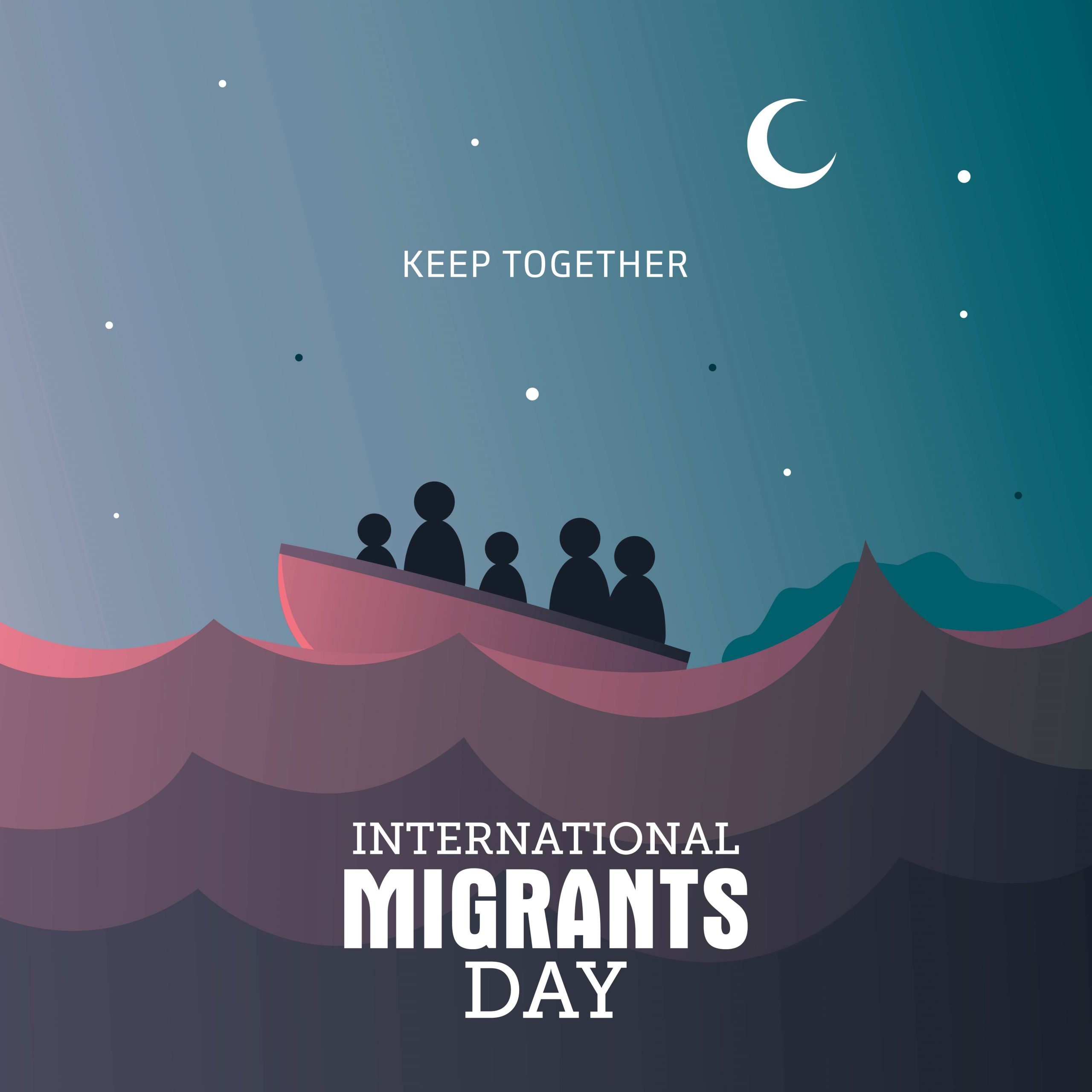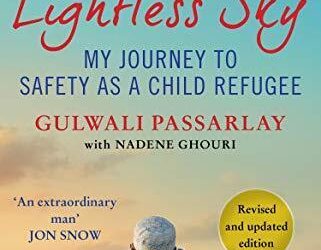Celebrating International Migrants Daywith practical and encouraging advice from migrants who have made the UK their new home.
Migrating is more than just moving to another geographical space. It comes with a loss of relationships, a loss of free time, new professional beginnings, and opportunities to learn new things. Adina
Migration is not a new phenomenon; people have moved from city to city, country to country, and continent to continent for centuries. And yet, the narrative around migration is increasingly damaging, with sensationalised statistics in the media and negative rhetoric from political or national figures. However, the truth is that according to the IOM’s World Migration Report 2022, approximately only 281 million people are living in countries other than their birth country; in other words, only 3.6% of the world’s population are international migrants.
Looking closer to home, in the year ending June 2022, approximately 1.1 million people migrated to the UK. However, during that same period, 560,000 people emigrated from these shores, leaving a net migration of 504,000 people. And according to UK government statistics, in the year ending June 2021, 6.0 million people living in the UK had the nationality of a different country, representing just 9% of the total population.
But who is a migrant, and why do people travel to a new country to start a new life? The UN Migration Agency (IOM) defines a migrant as any person who is moving or has moved across an international border or within a State away from their habitual place of residence, regardless of (1) the person’s legal status; (2) whether the movement is voluntary or involuntary; (3) what the causes for the movement are; or (4) what the length of the stay is.
There are many reasons a person would choose to leave behind their country of birth. Some people, sometimes called economic migrants, move in search of work or economic opportunities, while some migrate to study or to join family. Recently, there has been an increase in environmental migrants, people forced to leave due to the adverse effects of climate change and natural disasters. And sadly, some people are forced to migrate to escape war, persecution, abuse, or other human rights violations. According to UNHCR, the number of globally forcibly displaced people worldwide was 79.5 million at the end of 2019. And the recent humanitarian crisis in Afghanistan and Ukraine has only added to that number.
Over the years, TogetherintheUK has shared the stories of many international migrants. We believe that stories help us connect and share different cultures, traditions, and values; it is how we evolve and widen our perspective on life. We asked some of the storytellers what advice they would give a person considering migrating to the UK.
Be open minded, ready to learn about a new culture and unlearn habits and ideas that you have outgrown. When you grow up in your home country you learn a lot of positive things, however there are also things that get ingrained in you about who and what you should be that you can only realise once you are out of that environment. Use this retrospective ability to determine your current values and vision for yourself. However you still need to remember where you came from. Sometimes it is difficult to find the balance. Kosta
Leaving your home country is not easy, particularly as a refugee, but if we could only try not to link ourselves to one specific country, then every country can be home. And when someone asks us ‘where are you from’, say, ‘I am from Planet Earth’. This stance would make migrating and being a migrant so much easier. Daleel
Integrating into your new society is essential, and it will be a two-way process between you and your new community, but it may take time. Try to immerse yourself into British culture and look for a welcoming group or organisation which can help you adapt. Along with my openness to learn and adapt to British culture, I also found a supportive and welcoming environment in academia. This mutual approach was essential in my successful adjustment to my new life in the UK. Marius
Trust is a key issue for LGBTQ+ refugees, trust in themselves and the authorities. We have come from countries where our sexuality or gender identity is a criminal offence and where we have been persecuted, imprisoned, tortured or worse. The UK is held up as a place where people can live freely. Over recent years, there has been a change in attitude toward refugees, which is not always welcoming, but by working together, we can break down barriers, and the Say It Loud club is here to help. Aloysius
I am surprised that there are so many things that you can do for free here! First of all, museums; all state museums are free and limited English shouldn’t stop you as art doesn’t need translation. There are free lunch concerts on Fridays in the Royal Opera House. There is a wonderful Sky Garden on the top of the Fenchurch Building, known as the “walkie-talkie” building, where you can see the whole of London. The Internations, Ukrainian community in London, also organise some free events. Tatiana
Sorting out the practical aspects is very important, and these would be my top tips for migrants who have newly arrived in the UK. Firstly, get a UK sim card for your phone and then you are good to go. Setting up a new bank account that you can manage online is possible. When you find accommodation, register with your local council and, importantly, with your local NHS GP to enable you to access full medical services. And finally, if you intend to work, get a National Insurance Number. Aman
My advice if you are considering migrating to the UK is to research as many areas in the UK as possible and prioritise your wellbeing. If you don’t like living in a busy city, I would avoid London. It may appear that employment prospects are better, but the quality of life might not be what you aspire to. The UK is geographically and demographically diverse. It has charming rural areas, smaller vibrant university cities, many airports, and good transport links. You are never too far away from something interesting and fun.
My second advice is about skills. Learning English is a key one. But be open to learning more and new skills. Focus on digital skills, as most public services have great digital platforms. It helps you save time and money. Be practical and prepare for some of the most advanced digital systems in a country that is not afraid to research, innovate, and explore new ways of doing things.
Lastly, be open and non-judgemental. Be open to learning, meet new people with different interests than yours, understand other cultures, and appreciate the positives. Learn to appreciate that people can be different and that everyone has a right to express themselves, even if that is new to you or strange. You may also seem strange to others. Put yourself in another person’s shoes and be empathetic. Diversity can be overwhelming, but it is also so enriching. And the UK is a great mix of myriad identities. This is what makes it such a desired destination for many migrants. Adina
Sadly, at times migrants in the UK face racism or discrimination because of their nationality, gender or the colour of their skin. International Migrants’ Day is a good time to remember that it is up to all of us to challenge racism and prejudice. Some of the storytellers told us how they react when faced with such situations.
We need to recognise that any form of racism or discrimination typically comes from a place of ignorance. Its intent is not always malicious; in those instances, the only solution is to open a dialogue. Natalie
It may not be pleasant in the moment, but I recognise that discrimination, whether it is around my race or my gender, is most often generated by a patient’s fear and their lack of control around their situation. In my experience, I can diffuse situations and reassure patients and their families by being calm, polite but confident. Dr Susan Ozer
One damaging misconception is that migrants and refugees come to the UK to take advantage of its generous social welfare or to take jobs from other people. One of the authors in the TGIUK anthology, Hear Our Stories, due for publication by Support Us in August 2023, shared the prejudice she has encountered.
…but all they saw was an overdressed and wrongly dressed immigrant. “Here comes another one”, they must have said to each other as I passed them. “Another job will be stolen soon”, another would probably have said. “Or maybe, live in luxury on our sweat, step into the benefit system and never come out”. I hate these migrants, ignorant, lazy, parasites and thieves”, he continued. Farisai, My Life as an Immigrant, In so many Words.
The truth is that migrants add value to the UK economy; providing much-needed labour across all sectors, increasing productivity, contributing tax revenue, stimulating the economy, and sometimes generating international trade because of their connections in various countries.
I began working on the economics of immigration and integration as a civil servant over 25 years ago. I’m an economist, most at home with data and statistics, and I firmly believe that the evidence shows that immigrants make the UK a better place, whether economically, socially, or culturally. Most people who look at the evidence understand that immigration benefits the British economy, from the NHS and care homes to universities and restaurants. Jonathan Portes
A lot of the technology we use is made in Korea… Having a Korean working for us meant he ended up training others on it…I suspect we ended up saving money, not having to send two guys off to a course. Report on the impact of migrant workers on UK business
As we celebrate the UN International Migrants Day on 18 December, it would be interesting to know what advice we would like to receive if we migrated to a new country with a new language and culture. Hopefully, some of the guidance from those who have lived experiences will help us along a new journey.







